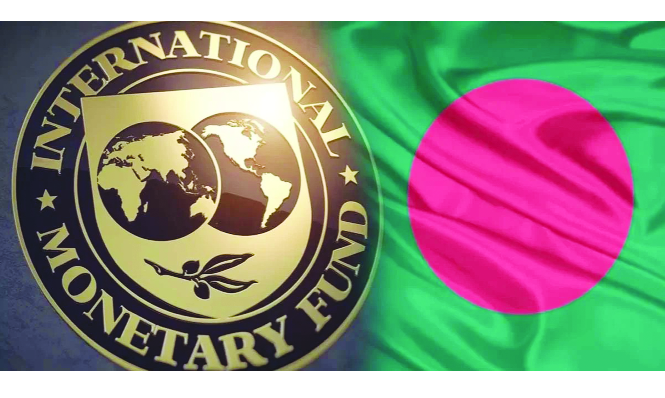

Staff Correspondent: The latest round of discussions between Bangladesh Bank and the International Monetary Fund (IMF) concluded on Monday evening without reaching any consensus over the disbursement of the remaining tranches of the $4.7 billion loan programme.
The virtual meeting, which lasted around 90 minutes, was led on the Bangladeshi side by central bank Governor Ahsan H. Mansur, accompanied by Deputy Governors Habibur Rahman and Kabir Ahmed. Despite continued negotiations, no agreement was struck, particularly over the IMF's condition regarding exchange rate flexibility.
Since the launch of the extended credit facility on 30 January 2023, Bangladesh has received $2.31 billion in three instalments: $476.3 million in February 2023, $681 million in December 2023, and $1.15 billion in June 2024. That leaves $2.39 billion still to be disbursed - contingent on further reforms, most notably a market-based exchange rate.
The IMF has long urged Bangladesh to adopt a floating exchange rate, whereby the market determines the value of the Tk against the US Dollar. However, Bangladesh Bank remains reluctant, citing concerns over potential economic volatility. A sudden depreciation could drive up the price of imports, fuelling inflation which already stands at over 9%.
Central bank sources, speaking on condition of anonymity, confirmed that while no formal resolution was reached on Monday, discussions are ongoing. The Bank has been attempting to convince the IMF that the present economic environment is not conducive to a fully market-driven exchange rate.
The issue has been a sticking point in multiple rounds of talks - both during the IMF mission to Dhaka last month and at a prior meeting in Washington. Despite persistent efforts, neither side has shifted its stance.
Monday's talks also touched on a proposal from Bangladesh for an additional $1 billion in stabilisation funding outside the current loan framework. The idea is to establish a buffer that would allow the central bank to intervene in the currency market, mitigating sharp fluctuations without drawing down foreign reserves.
Officials argued that such a fund could help absorb shocks in case of a steep rise in the dollar, but the IMF has yet to respond formally.
As of now, the path forward remains uncertain. However, both sides appear committed to continuing dialogue in the hope of bridging the gap. The stakes are high for Bangladesh as it navigates inflationary pressures, dollar shortages, and broader macroeconomic stability.
